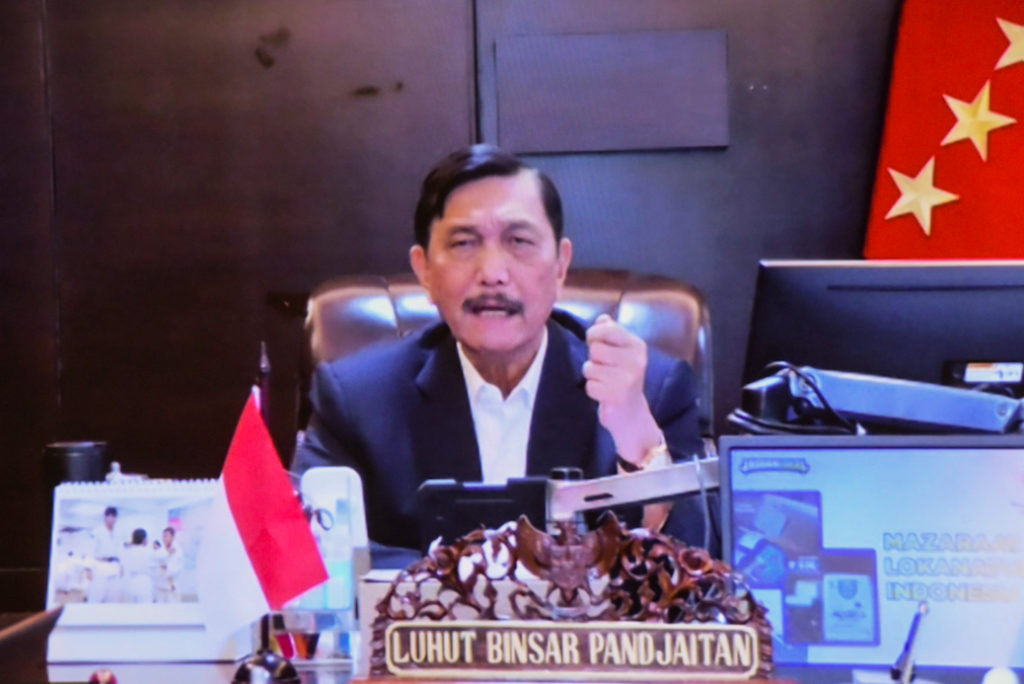Gov’t to Limit People’s Mobility Up to 50% to Flatten COVID-19 Curve

Coordinating Minister for Maritime Affairs and Investment Luhut Binsar Pandjaitan delivers a press statement after attending a virtual Limited Meeting on COVID-19 Pandemic Handling, Tuesday (6/7). (Photo by: PR of Cabinet Secretariat/Agung)
In an attempt to halt the pace of the COVID-19 pandemic, the Government has deemed it necessary to reduce people’s mobility by 30 percent, according to Coordinating Minister for Maritime Affairs and Investment Luhut Binsar Pandjaitan.
“Based on the results of our analysis, we need at least a 30 percent reduction of people’s mobility. I have conveyed this matter to the National Police, the Indonesian National Defense Forces (TNI), the Governors, Regents, and Mayors,” Luhut said in a press statement after attending a virtual Limited Meeting on COVID-19 Pandemic Handling, Tuesday (6/7).
Luhut went on to say that people’s mobility must actually be reduced up to 50 percent to deal with the highly infectious Delta variant of COVID-19.
“If we could reach the mobility reduction close to 50 percent within this week, we would start to see the flattening COVID-19 curve. We will see a decline on the curve,” he said.
The Minister underscored that the Government will continually monitor people’s mobility through the mobility index and night-light data, especially during the implementation of the Java-Bali Emergency Restrictions (PPKM Darurat), which has been put in place since 3 July.
“We have also prepared the Emergency PPKM monitoring methodology through the mobility index and night light. We engage Facebook Mobility and Google Traffic and night light with NASA. That way, we certainly can monitor that the Emergency PPKM is well implemented,” he stated.
The combined mobility index in the Emergency PPKM, Luhut added, will be compared with the baseline period from 24 May to 6 June so that the data obtained would be more accurate.
Based on observations on the ground, the Emergency PPKM has proven to reduce people’s mobility. However, Luhut acknowledged that the decrease is still far from expected, especially in the provinces of East Java and Bali that saw the lowest decrease.
On that occasion, Luhut also urged all parties to remain disciplined in observing the Emergency PPKM for the safety of the nation.
“We will continue to be consistent towards the implementation of the Emergency PPKM. Mobility restrictions will also continue to be carried out and we hope the public obey the rules, because this is ultimately for the safety of all of us,” he remarked. (DND/UN) (RIF/MUR)








